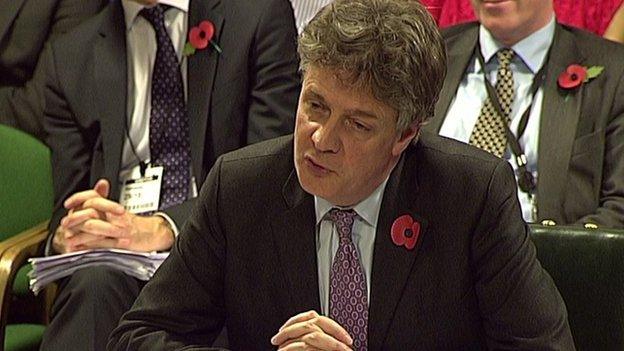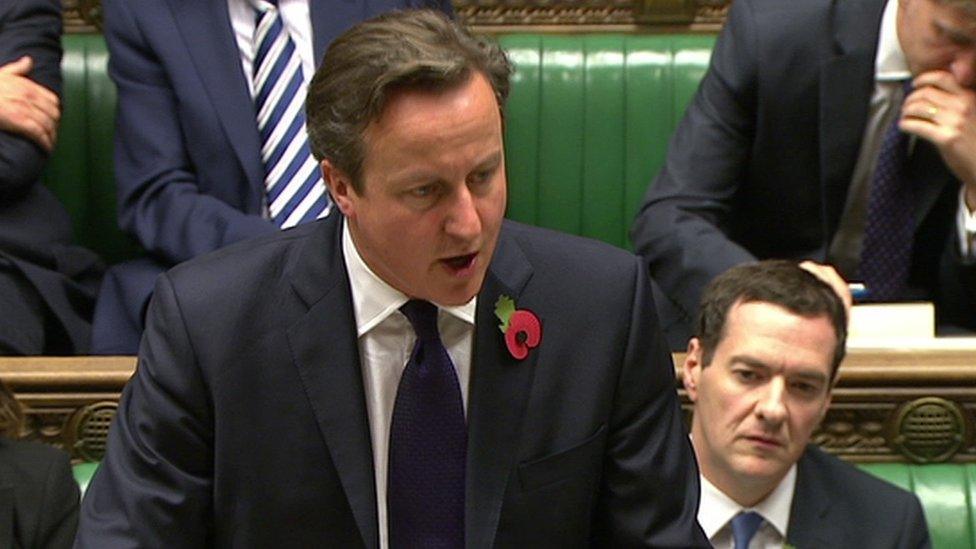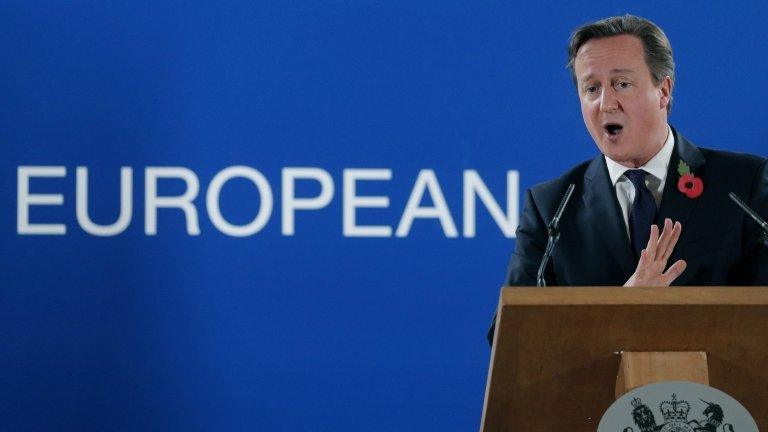UK was 'once keen' on EU funding rules, says Lord Hill
- Published

The UK was "keen" in the past on the European funding rules which mean it now has to pay an extra £1.7bn in contributions, the country's new European Commissioner has told MPs.
Lord Hill said the EU's calculations were "long-established", when questioned by the Commons European Scrutiny Committee.
But its chairman, Tory MP Sir Bill Cash, called the rules "a madhouse".
David Cameron has refused to pay the money by the EU's 1 December deadline.
The top-up payment of £1.7bn (2.1bn euros), which was announced last week, would add about a fifth to the UK's net EU contribution of £8.6bn for this year.
It is based on a calculation of how well the economies of member states have fared since 1995.
But the prime minister has called the £1.7bn a "vast amount" and questioned the timescale in which the UK is being asked to pay.
Chancellor George Osborne told ITV News on Wednesday that he was "confident" the UK could get the sum changed and many other EU states had sympathy with the UK's stance.
'Very bizarre'
During the committee's hearing, Sir Bill, a Eurosceptic, called the payment demand "a very bizarre situation" akin to a "madhouse", agreeing that Mr Cameron should refuse to pay until there was a better explanation.
Lord Hill, a former Conservative leader of the House of Lords, told the MPs: "My understanding of the current arrangements and the set of arrangements which has led to these results, with a number of countries being asked for additional contributions and a number of countries getting rebates
"The principle by which some people pay into the European Union and by which some people get rebates is one that is long-established and under this principle I understand that it's the case that in previous years the United Kingdom has had some rebates."
Lord Hill has yet to take office as a commissioner after being recommended by Mr Cameron and backed by the European Parliament.
He said it was his understanding that "the net effect of these various calculations is that the money available to the European Union will actually fall".
'Step forward'
Lord Hill added: "There have been cases obviously in the past, to do for instance with Britain's rebate, where this country would be keen on those calculations and having such a rebate."
European finance ministers are set to meet next week to discuss the situation.
Lord Hill said it was "right" that statisticians should look at the figures before "the next step forward" was decided.
He also said: "It's probably stupid of me to allow myself to get drawn down this route because I don't know the detail of it but it seems to me it is possible when you have a statistical reappraisal that statisticians can recalculate certain elements which may not be linked to the fundamental growth in the size of the economy but taking factors into account which they previously didn't which then leads to a different conclusion.
"It may be that that's what happened, I don't know."
- Published27 October 2014

- Published24 October 2014

- Published24 October 2014

- Published25 October 2014

- Published25 October 2014

- Published24 October 2014
- Published24 October 2014